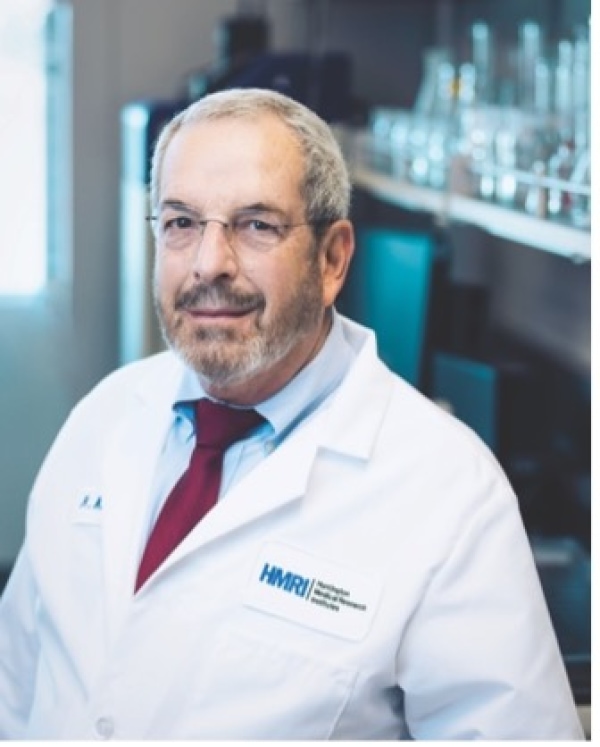
Robert A. Kloner, MD, PhD, is Chief Science Officer and Director of Cardiovascular Research at Huntington Medical Research Institutes (HMRI). He serves as Professor of Medicine (Clinical Scholar) at Keck School of Medicine at University of Southern California (USC) and Visiting Associate at the Aerospace Division of Engineering and Applied Science at California Institute of Technology (Caltech) in Pasadena, CA. Prior to accepting an appointment at HMRI, Dr. Kloner served as Director of Research of the Heart Institute of Good Samaritan Hospital in Los Angeles from 1987 to December 2014. He has run nationally and internationally known cardiovascular research programs for over 45 years, training dozens of medical scientists, and collaborating with scores of physician scientists, numerous research institutions and medical industries world-wide.
In the 1970s, Dr. Kloner received his BS and MD in the Honors Program in Medical Education at Northwestern University, and his PhD in Experimental Pathology from Northwestern University Medical School where he trained in the laboratory of Dr. Robert Jennings. Dr. Kloner is a member of Alpha Omega Alpha honor society. He completed his internship and residency in internal medicine at Peter Bent Brigham Hospital and Harvard Medical School in Boston, Massachusetts (1975-1978). Additional training included clinical and research fellowships in medicine and cardiology (with Eugene Braunwald, MD, and Peter Maroko, MD) at Harvard Medical School and Brigham and Women’s Hospital. He served as Assistant and then Associate Professor of Medicine at Harvard Medical School and was an attending cardiologist at Brigham and Women’s Hospital (1979-1984). He was the recipient of an Established Investigator Award of the American Heart Association (AHA), he is a fellow of the American College of Cardiology, an Inaugural Fellow of the Council on Basic Cardiovascular Sciences of the AHA, and Dr. Kloner was elected to the American Society of Clinical Investigation. In 2015, he was elected a Fellow of the Cardiovascular Section of the American Physiology Society.
Dr. Kloner has made major contributions to the understanding and treatment of heart disease, receiving funding from the National Institutes of Health (NIH), American Heart Association (AHA), Environmental Protection Agency (EPA), Department of Defense (DOD) and numerous corporations and private foundations. He performed some of the first studies on and helped define the concepts of no reflow in the heart, stunned myocardium, remote ischemic preconditioning, and triggers of cardiovascular events. He has made major contributions to the understanding of pathophysiology of heart attack, treatments for heart attack; studies on high blood pressure and heart failure; the effect of toxins like alcohol, cocaine, electronic cigarettes and pollution on the heart; stem cell therapy for the heart; and the intersection between sexual dysfunction and cardiovascular disease. Dr. Kloner is also collaborating with a bio-engineering group (cell phone app) at USC for noninvasive assessment of heart function. A frequent contributor to the medical and scientific press, Dr. Kloner has authored or co-authored 774 original papers in peer-reviewed journals, 222 chapters or monographs, and 574 abstracts (as of 2024). Dr. Kloner is the author and editor of 18 medical texts including: Cardiovascular Trials Reviews (10 editions); The Guide to Cardiology (3 editions); Stunned Myocardium; Ischemic Preconditioning; VIAGRA; and Heart Disease and Erectile Dysfunction. In addition, he has written and published three medical science fiction novels, and released an album of neo-classical piano compositions entitled “Tunes from Edmonson Alley,” in 2024.
Among his editorial responsibilities, Dr. Kloner served as editor-in-chief of the Journal of Cardiovascular Pharmacology and Therapeutics (2009-2019). He has served as Guest Editor of Circulation. He is on the editorial boards of American Journal of Cardiology, Basic Research in Cardiology, International Journal of Impotence Research, Journal of Cardiovascular Pharmacology and Therapeutics, Regenerative Medicine, and Life Sciences. Among his many career distinctions, Dr. Kloner has been listed in Who’s Who in America, The Best Doctors in America, and in 2002 was cited by the Institute for Scientific Information as one of the most highly cited scientific authors. He has an H-index of 137 and is cited over 87,350 times as per Google Scholar. Dr. Kloner is a frequent lecturer at major scientific symposia including the Scientific Sessions of the American Heart Association, and he has lectured at most major academic medical centers in the United States. He has taught at both the Keck School of Medicine at USC and lectured at Caltech.
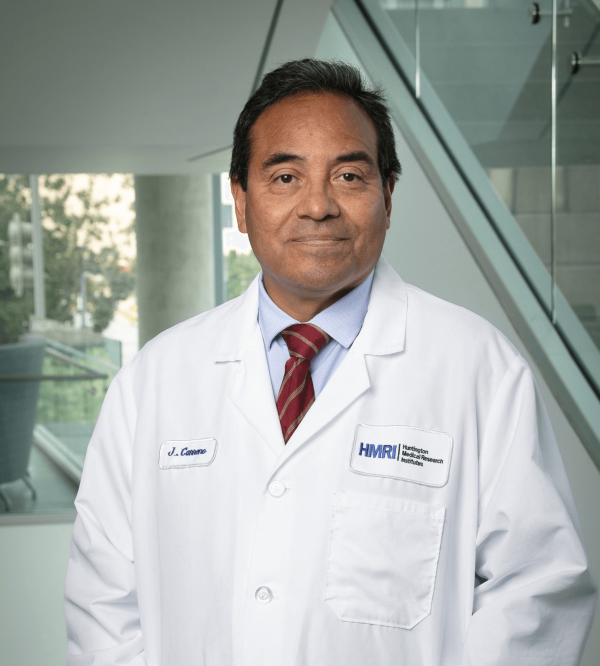
Juan Carreno, DVM, earned his doctoral degree in veterinary medicine at the National University of Mexico in 1991, and he is a Certified Manager in Animal Resources (CMAR) in Laboratory Animal Resources Management from the American Association for Laboratory Animals Science, USA. In the early stages of his career, he was interested in biomedical research and new ways to prevent and treat diseases that cause illness or death in people and animals. At HMRI, he collaborated with scientists to discover novel treatments for diseases in the cardiovascular and neuroscience fields using specialized animal models.
Since 2015, Dr. Carreno has been serving as the Vivarium Director at HMRI, where he is responsible for the laboratory animal facilities and the animal care and use program. In this role, he manages all core operational activities of the vivarium and husbandry staff to ensure the daily care of animals in an ethical, safe, and sanitary method using appropriate equipment, in compliance with the federally mandated Institutional Animal Care and Use Committee (IACUC) regulations and Institute policies. He also implements animal care husbandry policies and programs for monitoring animal health, sanitation, and sentinel.
Dr. Carreno works closely with the research departments and vivarium staff to develop the best practices and techniques to support projects at HMRI. He is an instrumental resource to animal users, providing technical expertise, troubleshooting, problem-solving, and assistance with optimizing in vivo procedures. Under the direction and expertise of Dr. Wangde Dai, Dr. Carreno receives hands-on training in current surgical techniques and procedures performed on rodents, including preoperative preparation, animal preparation, and post-operative care. Along with HMRI’s Cardiovascular Research Laboratory, Dr. Carreno has contributed 28 abstracts and eight publications to science.
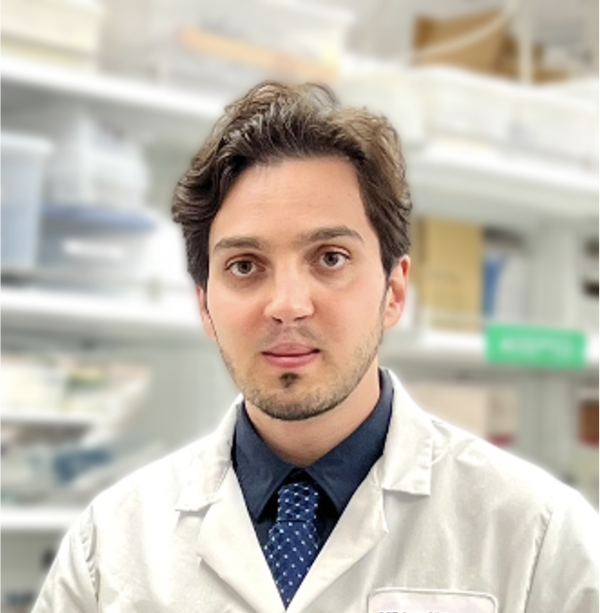
Cardiovascular Research, Huntington Medical Research Institutes (HMRI)
Department of Medical Engineering, California Institute of Technology (Caltech)
Faculty Mentors:
Morteza Gharib, PhD (Caltech)
Robert A. Kloner, MD, PhD (HMRI-Caltech)
Dr. Rashid Alavi currently holds the position of James Boswell postdoctoral fellow at California Institute of Technology (Caltech), where he leads projects bridging engineering and medicine in collaboration with the Huntington Medical Research Institutes (HMRI). He completed his doctoral studies in Mechanical/Cardiovascular Engineering in 2023, focusing on the development of "Novel physics-based AI approaches for noninvasive diagnostics and monitoring of myocardial Infarction, heart Failure, and stroke" via multiple successful clinical and preclinical studies conducted at USC Keck Hospital and HMRI.
During his doctoral studies, Dr. Alavi earned multiple recognitions. He was nominated for the “2023 Young Investigator Award of the American College of Cardiology (ACC)” as a top-five finalist. He is also the recipient of the “2023 Student Recognition Award of PKP National Honor Society”, where he was recognized for his collection of work on technological advances preventing heart diseases. Dr. Alavi was awarded the “James Boswell Postdoctoral Fellowship” by the Caltech Provost's Office in August 2023.
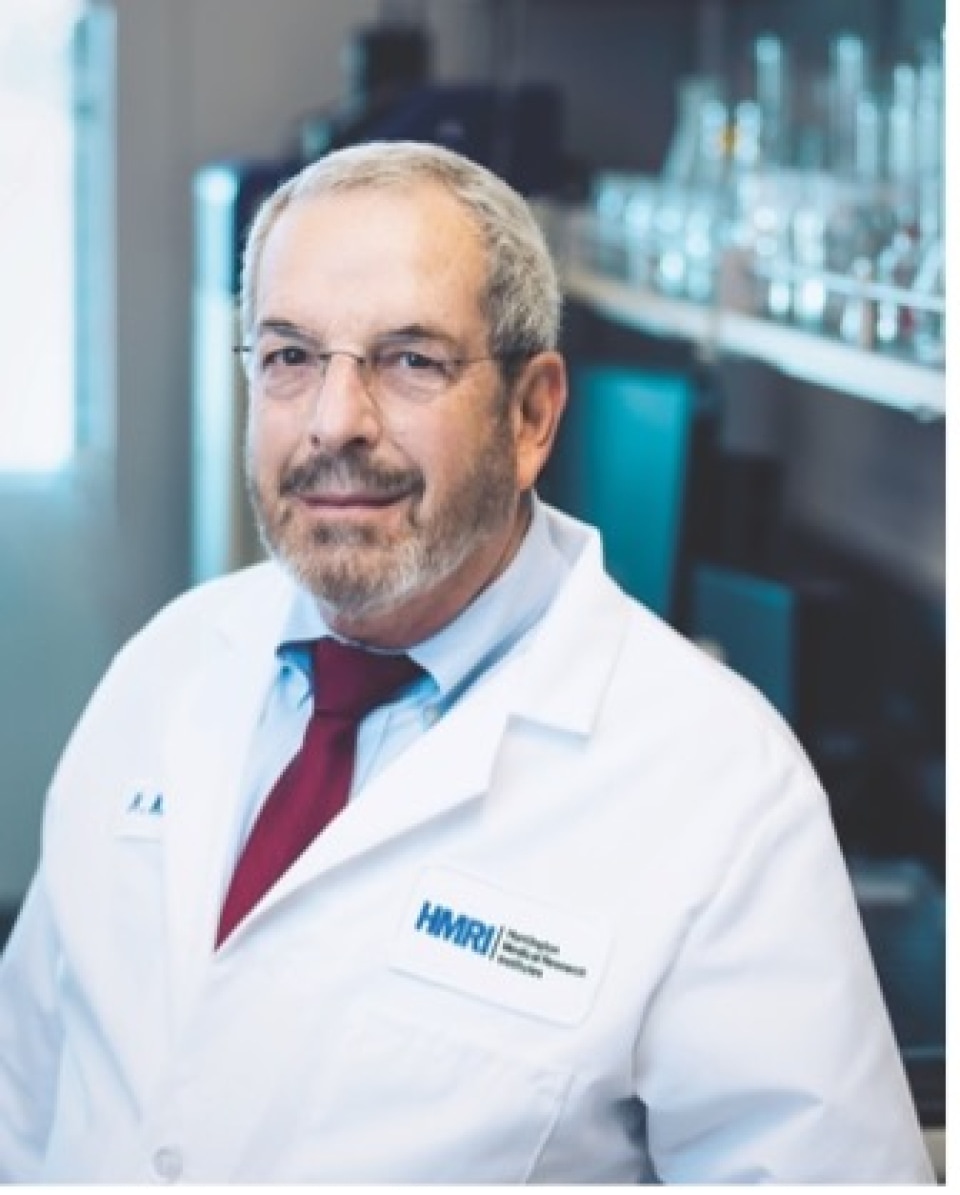
Robert A. Kloner, MD, PhD
Chief Science Officer
Chair Cardiovascular Research
Robert A. Kloner, MD, PhD, is Chief Science Officer and Director of Cardiovascular Research at Huntington Medical Research Institutes (HMRI). He serves as Professor of Medicine (Clinical Scholar) at Keck School of Medicine at University of Southern California (USC) and Visiting Associate at the Aerospace Division of Engineering and Applied Science at California Institute of Technology (Caltech) in Pasadena, CA. Prior to accepting an appointment at HMRI, Dr. Kloner served as Director of Research of the Heart Institute of Good Samaritan Hospital in Los Angeles from 1987 to December 2014. He has run nationally and internationally known cardiovascular research programs for over 45 years, training dozens of medical scientists, and collaborating with scores of physician scientists, numerous research institutions and medical industries world-wide.
In the 1970s, Dr. Kloner received his BS and MD in the Honors Program in Medical Education at Northwestern University, and his PhD in Experimental Pathology from Northwestern University Medical School where he trained in the laboratory of Dr. Robert Jennings. Dr. Kloner is a member of Alpha Omega Alpha honor society. He completed his internship and residency in internal medicine at Peter Bent Brigham Hospital and Harvard Medical School in Boston, Massachusetts (1975-1978). Additional training included clinical and research fellowships in medicine and cardiology (with Eugene Braunwald, MD, and Peter Maroko, MD) at Harvard Medical School and Brigham and Women’s Hospital. He served as Assistant and then Associate Professor of Medicine at Harvard Medical School and was an attending cardiologist at Brigham and Women’s Hospital (1979-1984). He was the recipient of an Established Investigator Award of the American Heart Association (AHA), he is a fellow of the American College of Cardiology, an Inaugural Fellow of the Council on Basic Cardiovascular Sciences of the AHA, and Dr. Kloner was elected to the American Society of Clinical Investigation. In 2015, he was elected a Fellow of the Cardiovascular Section of the American Physiology Society.
Dr. Kloner has made major contributions to the understanding and treatment of heart disease, receiving funding from the National Institutes of Health (NIH), American Heart Association (AHA), Environmental Protection Agency (EPA), Department of Defense (DOD) and numerous corporations and private foundations. He performed some of the first studies on and helped define the concepts of no reflow in the heart, stunned myocardium, remote ischemic preconditioning, and triggers of cardiovascular events. He has made major contributions to the understanding of pathophysiology of heart attack, treatments for heart attack; studies on high blood pressure and heart failure; the effect of toxins like alcohol, cocaine, electronic cigarettes and pollution on the heart; stem cell therapy for the heart; and the intersection between sexual dysfunction and cardiovascular disease. Dr. Kloner is also collaborating with a bio-engineering group (cell phone app) at USC for noninvasive assessment of heart function. A frequent contributor to the medical and scientific press, Dr. Kloner has authored or co-authored 774 original papers in peer-reviewed journals, 222 chapters or monographs, and 574 abstracts (as of 2024). Dr. Kloner is the author and editor of 18 medical texts including: Cardiovascular Trials Reviews (10 editions); The Guide to Cardiology (3 editions); Stunned Myocardium; Ischemic Preconditioning; VIAGRA; and Heart Disease and Erectile Dysfunction. In addition, he has written and published three medical science fiction novels, and released an album of neo-classical piano compositions entitled “Tunes from Edmonson Alley,” in 2024.
Among his editorial responsibilities, Dr. Kloner served as editor-in-chief of the Journal of Cardiovascular Pharmacology and Therapeutics (2009-2019). He has served as Guest Editor of Circulation. He is on the editorial boards of American Journal of Cardiology, Basic Research in Cardiology, International Journal of Impotence Research, Journal of Cardiovascular Pharmacology and Therapeutics, Regenerative Medicine, and Life Sciences. Among his many career distinctions, Dr. Kloner has been listed in Who’s Who in America, The Best Doctors in America, and in 2002 was cited by the Institute for Scientific Information as one of the most highly cited scientific authors. He has an H-index of 137 and is cited over 87,350 times as per Google Scholar. Dr. Kloner is a frequent lecturer at major scientific symposia including the Scientific Sessions of the American Heart Association, and he has lectured at most major academic medical centers in the United States. He has taught at both the Keck School of Medicine at USC and lectured at Caltech.
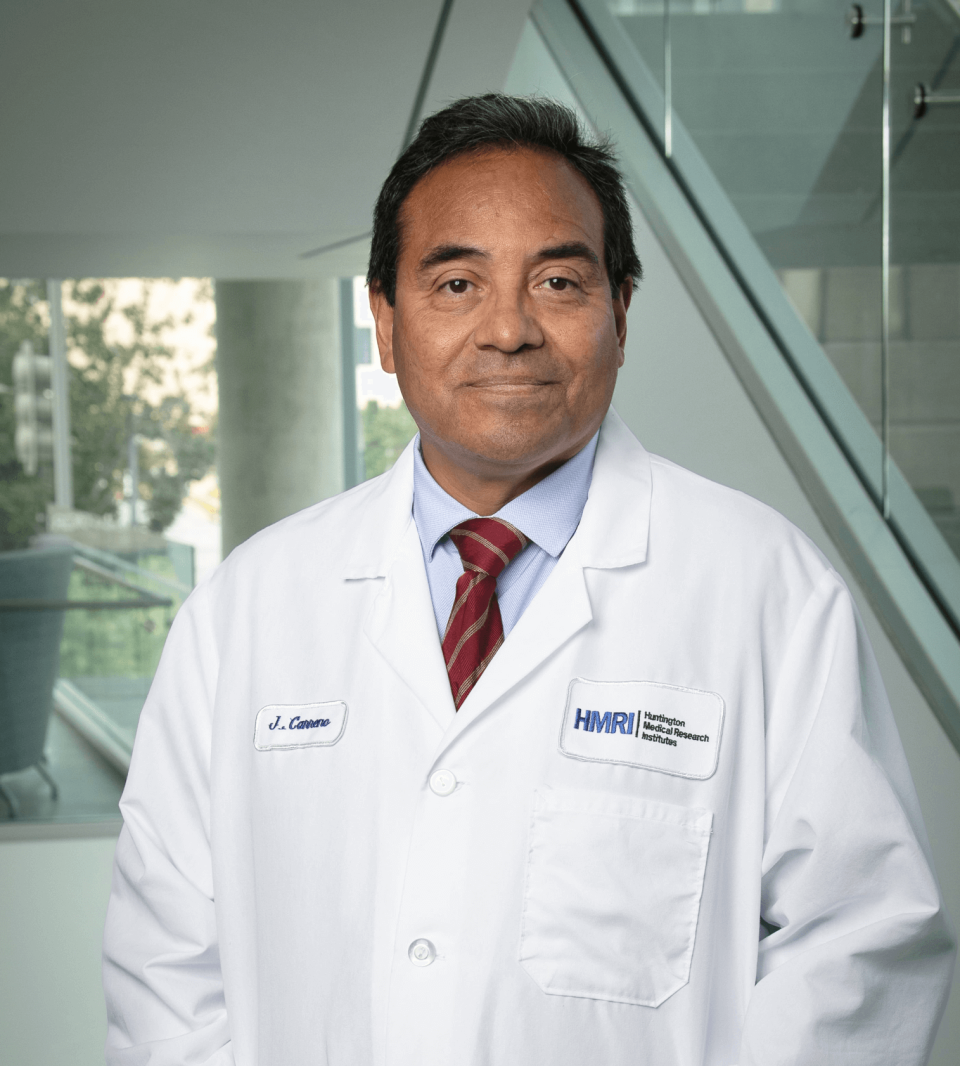
Juan Carreno, DVN
Director, Vivarium
Research Assistant Professor
Juan Carreno, DVM, earned his doctoral degree in veterinary medicine at the National University of Mexico in 1991, and he is a Certified Manager in Animal Resources (CMAR) in Laboratory Animal Resources Management from the American Association for Laboratory Animals Science, USA. In the early stages of his career, he was interested in biomedical research and new ways to prevent and treat diseases that cause illness or death in people and animals. At HMRI, he collaborated with scientists to discover novel treatments for diseases in the cardiovascular and neuroscience fields using specialized animal models.
Since 2015, Dr. Carreno has been serving as the Vivarium Director at HMRI, where he is responsible for the laboratory animal facilities and the animal care and use program. In this role, he manages all core operational activities of the vivarium and husbandry staff to ensure the daily care of animals in an ethical, safe, and sanitary method using appropriate equipment, in compliance with the federally mandated Institutional Animal Care and Use Committee (IACUC) regulations and Institute policies. He also implements animal care husbandry policies and programs for monitoring animal health, sanitation, and sentinel.
Dr. Carreno works closely with the research departments and vivarium staff to develop the best practices and techniques to support projects at HMRI. He is an instrumental resource to animal users, providing technical expertise, troubleshooting, problem-solving, and assistance with optimizing in vivo procedures. Under the direction and expertise of Dr. Wangde Dai, Dr. Carreno receives hands-on training in current surgical techniques and procedures performed on rodents, including preoperative preparation, animal preparation, and post-operative care. Along with HMRI’s Cardiovascular Research Laboratory, Dr. Carreno has contributed 28 abstracts and eight publications to science.
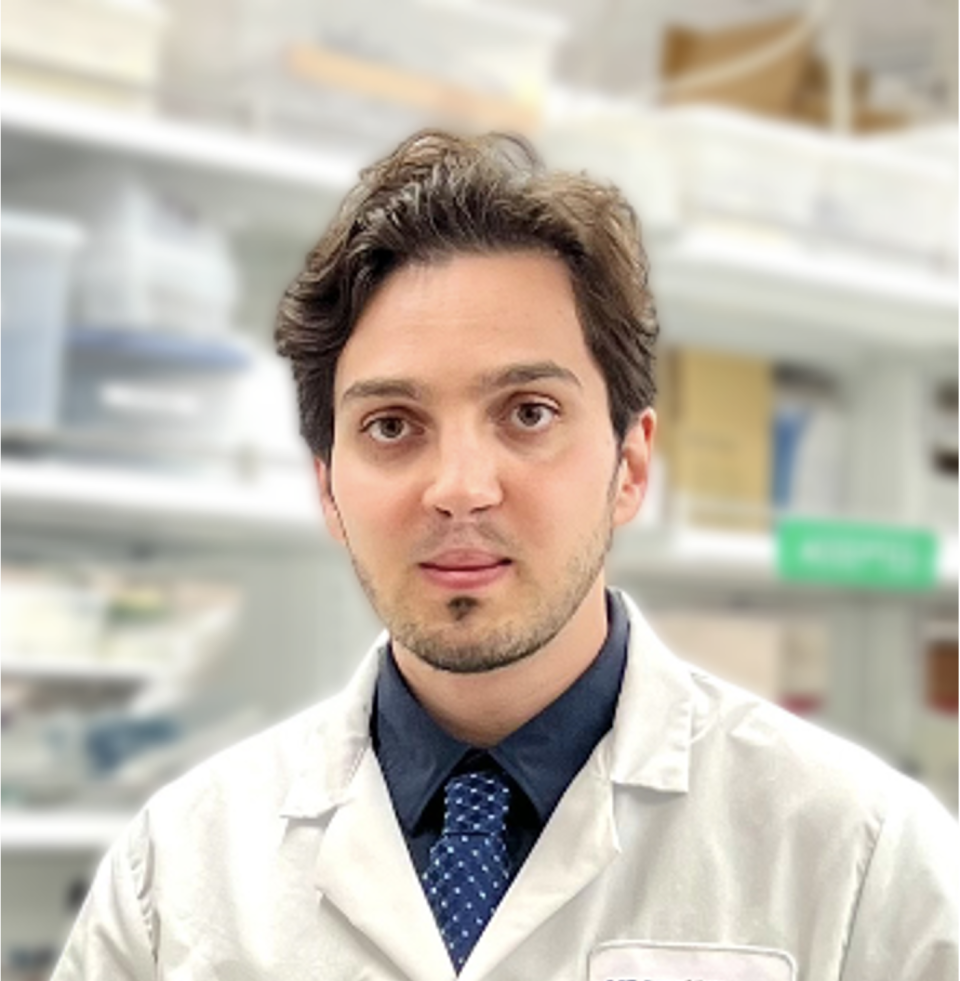
Rashid Alavi, PhD
James G. Boswell Postdoctoral Fellow
Cardiovascular Research
Cardiovascular Research, Huntington Medical Research Institutes (HMRI)
Department of Medical Engineering, California Institute of Technology (Caltech)
Faculty Mentors:
Morteza Gharib, PhD (Caltech)
Robert A. Kloner, MD, PhD (HMRI-Caltech)
Dr. Rashid Alavi currently holds the position of James Boswell postdoctoral fellow at California Institute of Technology (Caltech), where he leads projects bridging engineering and medicine in collaboration with the Huntington Medical Research Institutes (HMRI). He completed his doctoral studies in Mechanical/Cardiovascular Engineering in 2023, focusing on the development of "Novel physics-based AI approaches for noninvasive diagnostics and monitoring of myocardial Infarction, heart Failure, and stroke" via multiple successful clinical and preclinical studies conducted at USC Keck Hospital and HMRI.
During his doctoral studies, Dr. Alavi earned multiple recognitions. He was nominated for the “2023 Young Investigator Award of the American College of Cardiology (ACC)” as a top-five finalist. He is also the recipient of the “2023 Student Recognition Award of PKP National Honor Society”, where he was recognized for his collection of work on technological advances preventing heart diseases. Dr. Alavi was awarded the “James Boswell Postdoctoral Fellowship” by the Caltech Provost's Office in August 2023.
